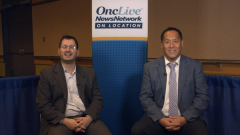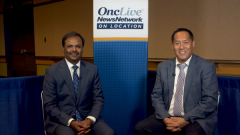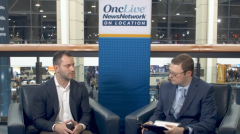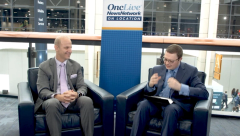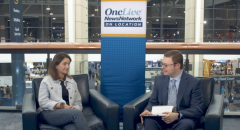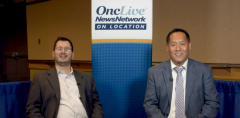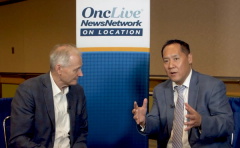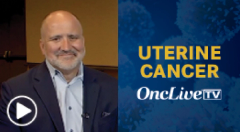
Dr Ramalingam on Updates in Lung Cancer Following the 2024 ASCO Annual Meeting
Suresh S. Ramalingam, MD, FACP, FASCO, and Chandler H. Park, MD, FACP, discuss updates in non–small cell lung cancer at the 2024 ASCO Annual Meeting.
Episodes in this series

Suresh S. Ramalingam, MD, FACP, FASCO, professor, Department of Hematology and Medical Oncology, Roberto C. Goizueta Distinguished Chair for Cancer Research, Emory University School of Medicine; executive director, Winship Cancer Institute of Emory University; associate vice president, Cancer, Woodruff Health Sciences Center, and Chandler H. Park, MD, FACP, medical oncologist, Norton Healthcare; clinical assistant professor, University of Kentucky; medical school professor, University of Louisville School of Medicine; Kentucky medical oncologist representative, National Comprehensive Cancer Network; Kentucky physician representative, State Executive Council, American Society of Clinical Oncology (ASCO), discuss updates in non–small cell lung cancer (NSCLC) on OncLive® News Network: On Location at the
At the meeting, one of the primary focuses was updates in lung cancer management, Park begins. The plenary sessions provided significant data, particularly concerning EGFR mutations, he says. There has been a progression from earlier studies
LAURA evaluated patients with EGFR-mutated, unresectable, stage III NSCLC, Ramalingam begins. Patients were randomly assigned to receive either osimertinib (Tagrisso) or placebo following chemotherapy and radiation. The primary end point was progression-free survival (PFS). The median PFS by blinded independent central review was 5.6 months (95% CI, 3.7-7.4) in the control group compared with 39.1 months (95% CI, 31.5–not calculable) in the osimertinib group (HR, 0.16; 95% CI, 0.10-0.24; P < .001), he reports. Importantly, benefits with osimertinib were observed across all key patient subgroups, Ramalingam adds. The safety profile of the agent was consistent with expected safety outcomes in this patient population after both chemotherapy and radiation, as well as with osimertinib.
This study establishes osimertinib as a new standard of care for patients with EGFR mutations and unresectable stage III disease after chemotherapy and radiation, he expands. Although the overall survival (OS) results are not yet mature, there is a favorable trend toward improved OS with osimertinib that may translate into an OS benefit in the coming years as more data become available, according to Ramalingam. This study is groundbreaking and was a highlight of the plenary session, Park concludes.



